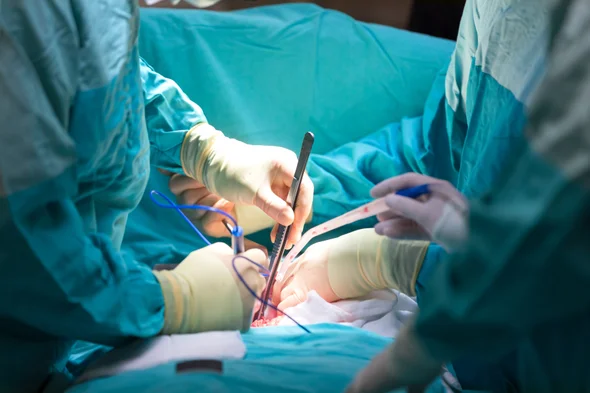History of Organ Transplantation
Organ transplantation dates back to ancient times, with early attempts recorded in various civilizations. However, the first successful organ transplant took place in 1954 when Dr. Joseph Murray performed a kidney transplant between identical twins. This groundbreaking achievement paved the way for further advancements in the field.
Types of Organ Transplants
Kidney Transplantation
Kidney transplantation is the most common type of organ transplant performed today. It involves replacing a diseased or failed kidney with a healthy kidney from a living or deceased donor.

Liver Transplantation
Liver transplantation is a complex procedure that replaces a diseased or damaged liver with a healthy liver from a donor. It is often performed in cases of end-stage liver disease or liver failure.
Heart Transplantation
Heart transplantation is a life-saving procedure that involves replacing a failing heart with a healthy heart from a donor. It is typically reserved for patients with severe heart failure.
Lung Transplantation
Lung transplantation is performed when a patient’s lungs are severely damaged or failing. It involves replacing one or both lungs with healthy lungs from a donor.
Pancreas Transplantation
Pancreas transplantation is a treatment option for patients with type 1 diabetes or severe pancreatic disease. It involves replacing a diseased or malfunctioning pancreas with a healthy pancreas from a donor.
Intestinal Transplantation
Intestinal transplantation is a complex procedure performed in cases of intestinal failure. It involves replacing a diseased or failed intestine with a healthy intestine from a donor.
Multivisceral Transplantation
Multivisceral transplantation is a rare and intricate procedure that involves transplanting multiple organs from a single donor. It is typically performed in cases where multiple organs are failing or diseased.
Composite Tissue Transplantation
Composite tissue transplantation refers to the transplantation of composite tissues, such as hands, faces, or limbs. It is a groundbreaking field that has provided new hope to individuals with severe tissue loss.
The Organ Transplant Process
Organ transplantation involves a series of steps that must be carefully managed to ensure the success of the procedure.
Evaluation and Eligibility
Before undergoing transplantation, potential recipients go through a thorough evaluation process to determine their eligibility. This evaluation includes medical tests, psychological assessments, and discussions about the risks and benefits of the procedure.
Waiting List and Allocation
Once deemed eligible, patients are placed on a waiting list for an organ that matches their blood type, tissue type, and other medical factors. Organ allocation is based on a complex system that considers factors such as medical urgency, waiting time, and compatibility.
Surgery and Transplantation
When a suitable organ becomes available, the recipient is prepared for surgery. The transplantation procedure involves removing the diseased organ and replacing it with the healthy organ from the donor. Highly skilled surgical teams perform these intricate procedures with utmost precision.
Post-Transplant Care
After transplantation, patients require lifelong medical care to ensure the success of the procedure. This includes taking immunosuppressive medications to prevent organ rejection, regular medical check-ups, and maintaining a healthy lifestyle.
Challenges and Ethical Considerations
While organ transplantation has brought hope and healing to many, it is not without challenges and ethical dilemmas.
Organ Shortage
One of the most significant challenges in organ transplantation is the shortage of organs. The demand for organs far exceeds the available supply, leading to long waiting lists and unfortunate outcomes for some patients.
Organ Rejection
Organ rejection occurs when the recipient’s immune system recognizes the transplanted organ as foreign and mounts an immune response against it. This requires the use of immunosuppressive medications to suppress the immune system and prevent rejection.
Immunosuppressive Medications
Immunosuppressive medications, while vital for preventing organ rejection, come with their own set of challenges. They can have significant side effects, weaken the immune system, and increase the risk of infections and other complications.
Organ Trafficking and Illegal Transplantation
The shortage of organs has led to the rise of organ trafficking and illegal transplantation practices. This unethical trade exploits vulnerable individuals and undermines the integrity of the transplantation process.
Advancements in Organ Transplantation
Over the years, advancements in medical science and technology have greatly improved the field of organ transplantation.
Transplant Immunology and Matching
Understanding the intricacies of the immune system and developing better methods for matching donors and recipients have increased the success rates of organ transplantation and reduced the risk of rejection.
Organ Preservation Techniques
The development of improved organ preservation techniques, such as cold storage and machine perfusion, has extended the viability of organs outside the body, allowing for better transport and increased transplant success.
Minimally Invasive Surgery
Advancements in surgical techniques have led to the rise of minimally invasive procedures, reducing patient trauma, post-operative pain, and recovery time.
Xenotransplantation
Xenotransplantation, the transplantation of organs or tissues from animals to humans, holds great potential for overcoming the organ shortage crisis. Researchers are actively exploring the possibilities and challenges associated with this promising field.
The Impact of Organ Transplantation
Organ transplantation has a profound impact on the lives of individuals, families, and society as a whole.
Improved Quality of Life
For recipients, organ transplantation often means a significant improvement in their quality of life. They can regain their independence, return to work, and engage in activities they were once unable to enjoy.
Extended Lifespan
Transplantation offers the gift of extended lifespan to patients with end-stage organ failure. It allows them to live longer and continue making cherished memories with their loved ones.
Societal and Economic Benefits
Organ transplantation not only saves lives but also brings about societal and economic benefits. Transplant recipients contribute to their communities, families, and the economy, leading fulfilling and productive lives.
Conclusion
Organ transplantation is a remarkable medical achievement that continues to transform lives. Through the selfless act of organ donation, individuals can offer the gift of life to those in need. However, the challenges of organ shortage, rejection, and ethical considerations persist. It is crucial to raise awareness, promote organ donation, and support ongoing research to address these issues and ensure that more lives can be saved.



